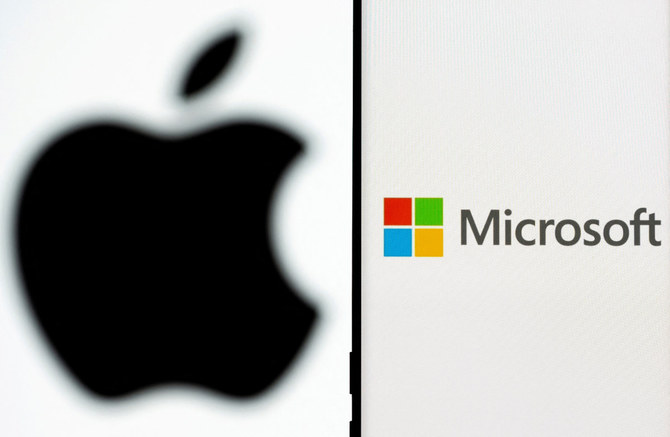
Apple has lost its crown as the world’s most valuable company to the oil giant Saudi Aramco, as soaring commodity prices swell profits at energy companies and technology stocks continue to slide.
In a sign that the old economy is reasserting itself over the new this year, Aramco eclipsed Apple on Wednesday night amid the ongoing rout on Wall Street.
Share in Apple, which had become the world’s first $3tn company in early January, sank another 5% on Wednesday, knocking its value down to $2.37tn (£1.94tn) – an 18% drop this year.
This pulled the iPhone maker’s valuation below Aramco, whose market capitalisation has climbed by a quarter this year to hit $2.43tn, stoked by the surge in oil prices since the Ukraine war began.
Aramco’s rise comes a decade after the watershed moment in 2011 when Apple surpassed another energy giant, ExxonMobil, to become the world’s most valuable listed company. Since then, Apple, Microsoft, Google’s owner Alphabet and Amazon have dominated stock markets, hitting and then surpassing $1tn valuations and pushing oil giants out of the top ranks. Only Saudi Aramco has regularly featured among the most valuable.
Neil Wilson, of Markets.com, said there was “something symbolic in tech being overtaken by oil”, adding that “this steamroller of a bear market” was pushing stocks down.
The two companies have traded the top spot before. Aramco became the world’s biggest listed company when it floated on Saudi Arabia’s Tadawul stock exchange in December 2019, and would have been bigger than Exxon if it had been a public company a decade ago. Apple surged back to overtake Aramco in July 2020 as the pandemic boosted demand for technology products and services.
This latest changing of the guard highlights how the impact of Russia’s invasion of Ukraine, soaring inflation and the current Covid-19 lockdowns in China are all creating economic turmoil.
“Apple posted better-than-expected results in the quarter ended March 2022,” said Parth Vala, analyst at GlobalData. “However, amid the increasing supply chain constraints on account of the rapidly changing global geopolitical scenarios, silicon shortages and intense lockdowns in China, the company anticipates that the June quarter could take a revenue hit between the range of $4bn and $8bn.”
In contrast, Aramco is seeing bumper revenues and earnings, having doubled its profits last year. In its first-quarter earnings due on Sunday, it is expected to report that net income almost doubled to about $38bn in the January-March period.
“The Russia-Ukraine conflict has sent the global energy prices soaring, which resulted in the energy companies booking substantial top-line and bottom-line growth,” Vala added.
Aramco has a particularly low cost of production, as much of its oil is in easy-to-tap fields onshore or in shallow waters. That boosts profitability at the company, which is still 95% owned by the Saudi government.
James Meyer, chief investment officer at Tower Bridge Advisors, has pointed out that Apple and Aramco are not comparable in terms of businesses or fundamentals, although the latter has clearly benefited from the tightening commodity market. “They’re the beneficiaries of inflation and tight supply,” Meyer said.
The Ukraine invasion drove oil to 13-year highs of about $130 a barrel. Although prices have eased, Brent crude is still trading at $105 a barrel today, up from $77 at the start of year.
The surge in energy and food prices this year will leave consumers with less money to spend on non-essential items such as technology products. Higher interest rates have also hits the value of “growth stocks” such as technology companies, which promise higher returns in the future.
More than $1tn has been wiped off the valuation of major US tech stocks in the last week, after America’s central bank reasserted its determination to cool inflation from its 40-year high.
The Nasdaq Composite Index has tumbled by 27% this year, and 20% since the start of April, while Vanguard’s Energy Index Fund has surged 34% during 2022.
The former darlings of the Covid lockdown period have seen their valuations crumble, with Netflix down 72% this year, and Peloton off 65%.
It’s a similar story in the UK, where shares in the online grocery firm Ocado have more than halved this year. Having in September 2020 been worth more than Tesco, the UK’s largest supermarket chain, Ocado’s value has now dropped to just above the second-largest grocer Sainsbury’s.










